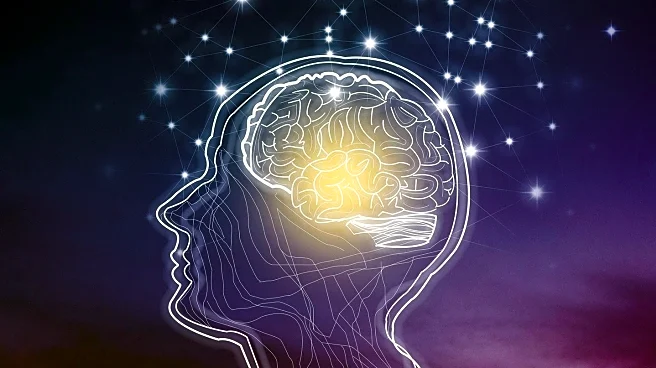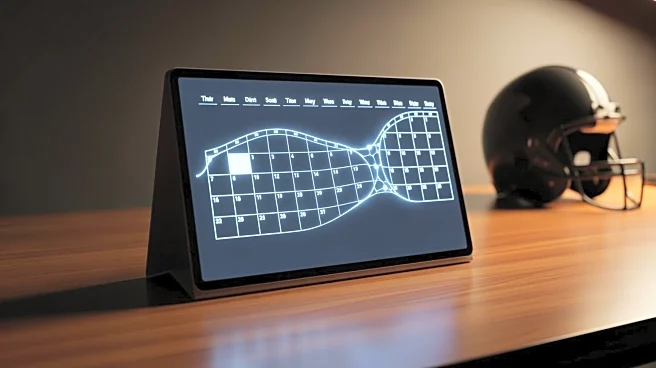What's Happening?
Researchers at the University of Portsmouth have developed a pioneering brain-scanning method that visualizes anxiety, potentially revolutionizing its understanding, diagnosis, and treatment. The study
focuses on 'avoid-avoid conflict,' a scenario where individuals face two negative options, believed to closely mimic real-life anxiety situations. This contrasts with traditional research that examines 'approach-avoid' conflict, involving a choice between a positive and a less positive option. The study involved 40 young adults who participated in a video-game-like task, using EEG to measure brain activity during high-conflict situations. The findings revealed specific patterns of brain activity, particularly in the right frontal area, which may serve as a signature for anxiety-related conflict.
Why It's Important?
This research could significantly impact the way anxiety is diagnosed and treated, offering a more objective method to identify anxiety-related brain patterns. Current anxiety treatments often rely on trial and error with medications, which may not be effective for everyone. By understanding the brain's response to anxiety, non-drug approaches such as brain-based training or psychological therapies could be developed to target these patterns directly. This advancement opens the possibility for personalized treatments, potentially improving outcomes for individuals suffering from anxiety. The study's findings could also aid clinicians in validating diagnoses and tracking the effectiveness of therapies.
What's Next?
The researchers plan to validate their findings against anxiety-reducing medications and expand their study to larger and more diverse groups. Future research aims to address individual differences in brain patterns and explore the use of EEG in clinical settings to support diagnosis. The long-term goal is to establish these patterns as reliable indicators for personalized treatment plans, potentially integrating small EEG devices in mental health clinics to assist in diagnosis. This research marks a step towards more precise and personalized approaches to managing anxiety.
Beyond the Headlines
The study highlights the potential for non-drug treatments targeting specific brain patterns associated with anxiety, offering a novel approach to mental health care. Ethical considerations include ensuring the reliability of technology-based diagnostics and addressing individual variability in brain responses. The integration of EEG in clinical practice could enhance diagnostic accuracy but should complement, not replace, clinical judgment.









